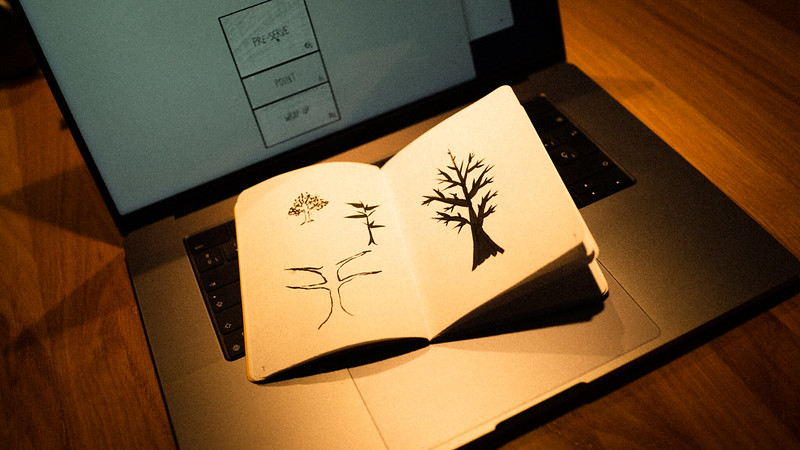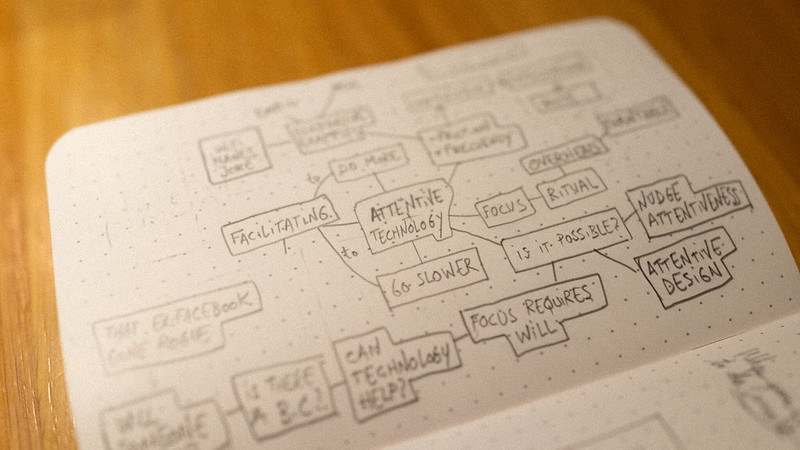
Rafa Nadal’s pre-serve routine takes about 15 seconds (clean line, left foot, right foot, choose ball, underwear, left shoulder, right shoulder, right ear, left ear, bounce, bounce, bounce, bounce). After the point, he performs a closure routine that takes around 10 seconds (towel, left arm, left eye, right eye, right arm, return towel).
If we take an average point duration of 7 seconds (generous), the full cycle looks like this.

Overhead is everywhere
Preparation takes 47% of the cycle; action takes 22%; closure, 31%. Rafa Nadal plays with 78% overhead time — percentage of the time not spent on action.
Most activities have overhead. Let’s take lunch as an example. First you cook, then you eat, finally you do the dishes. If you do the math, lunch has probably 70% overhead, preparation and closure take most of the time.

Commuting to and from work is overhead. Turning on and off your computer is overhead. Grocery shopping is overhead. All chores are overhead. Overhead is everywhere!
Eliminate Overhead
We hate overhead. Overhead is waste.

Time for Living — capital letter Living. Because dishwashing is not living. Dishwashing is overhead, so we’d rather delegate it, optimize it. It’s not productive. We must get rid of it.

Just eat. The brand name says it all. Why would you bother doing anything else when you can just eat? That’s what you came here to do, didn’t you?
Reducing overhead is one more sign of our culture’s obsession with convenience and productivity. We must reduce non value-add activities by streamlining, automating or delegating. Just focus on what matters.

You are close to the deadline, but you can still treat yourself with some shitty food because we have streamlined its delivery to your workplace. So much for busyness, convenience and optimization, including deadlines and processed food: the perfect collage of our times.
It doesn’t have to be this way, though. I don’t think Nadal is planning to optimize his pre-serve routine anytime soon. Moreover, he seems to be leaning on it, as an integral part of his game. For God’s sake, they had to come up with the 25 seconds rule to limit overhead because elite players would just dwell on it!
Overhead time is thinking time.
The match is also won during preparation and closure.
Preparation and closure are breathing spaces.
Overhead time works better when it is ritualized.
Overhead time works better when the body to moves.
If you find yourself saying often: I have no time to think, you have optimized too much.
We could have chosen to sacralize overhead time instead of eliminating it, but we just went for the default option. Just remember that you can always unlearn into a different setup.
Where did the time go?
Reducing overhead resonates — dishwashing is not living.
If something resonates, it will probably have a positive business
case.
If it has a positive business, it will happen.
And so, overhead got optimized.
What did we do with the time we gained? We had two options.
We could have decided to lengthen the time dedicated to the action, to be more deliberate, to slow down.

But instead, we chose to cram more stuff in that space, to check more boxes, to speed up.

And, by the paradox of time-attention, we threw our lifes into the vortex, into the black hole. We chose to live in the singularity: everything is optimized and still there’s no time for anything.
Technology is the shovel we use to dig the hole
Most tech has been created/used to reduce overhead, to make us more productive, to deliver convenience.
But hey:

Tech is not inherently a hazard; our intentions are. We missed our chance to create a slower world.
But, is a slower world a real option? At individual level, perhaps. At individual level we can disarm the tyranny of the business case. At a bigger scale? I don’t know. Water follows the path of least resistance. If we dig a hole, water will fill it up.
Two things: one pledge and one hope.
The pledge:
I will sacralize overhead time.
I will ritualize overhead time.
And if I indulge in convenience or optimization,
I will give back the released time to my duty.
The hope:

- Technology that creates space over
technology that fills the space. - Technology that nurtures attention over
technology that captures attention. - Technology that slows down over
technology that accelerates. - Technology that is deliberate over
technology that is casual. - Technology that is empowering over
technology that is convenient. - Technology that cultivates our rituals over
technology that shortcuts our rituals. - Technology that supports thinking over
technology that supports action.
As novices, we had to wash dishes for one hundred monks. There was no running water—no cold water, no hot water, no tap water at all, and no soap. You may wonder how we managed to wash the dishes! We had only ashes, rice husks, and a coconut skin to use as a sponge. Many people in my country still use this. You take a layer of coconut skin and dry it to make into implements for cleaning pots and pans. We had to heat up a big pot of water before we could do any scrubbing. As a novice, I had to go out and gather wood in the pine-covered hills. We gathered dead branches and pine needles into a big heap. You can cook rice or soup with just pine needles.
We were just two novices washing the dishes for one hundred monks. It was a lot of fun washing dishes together, even without hot running water and soap. Some countries have modern homes that are very comfortable. The water, hot and cold, comes right into the kitchen; you have only to turn on the tap.
You can stand there and enjoy washing dishes. But maybe you are lazy. You see a big pile of dishes and you don’t want to go over and wash them. But as soon as you roll up your sleeves and stand in front of the basin, it is not difficult anymore.
Whether you are living in a modern country, or you have only a well for water, you can still enjoy washing the dishes.



